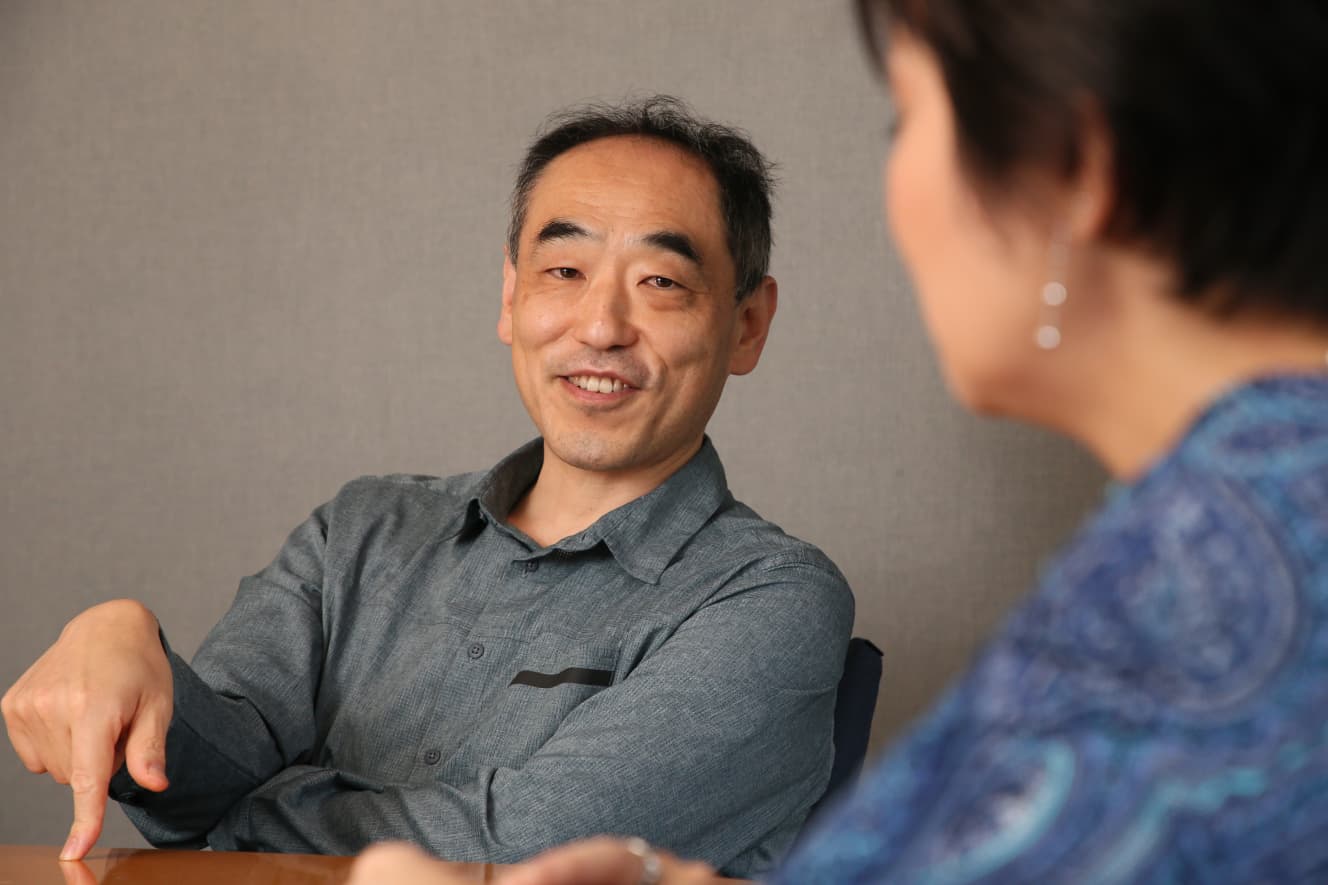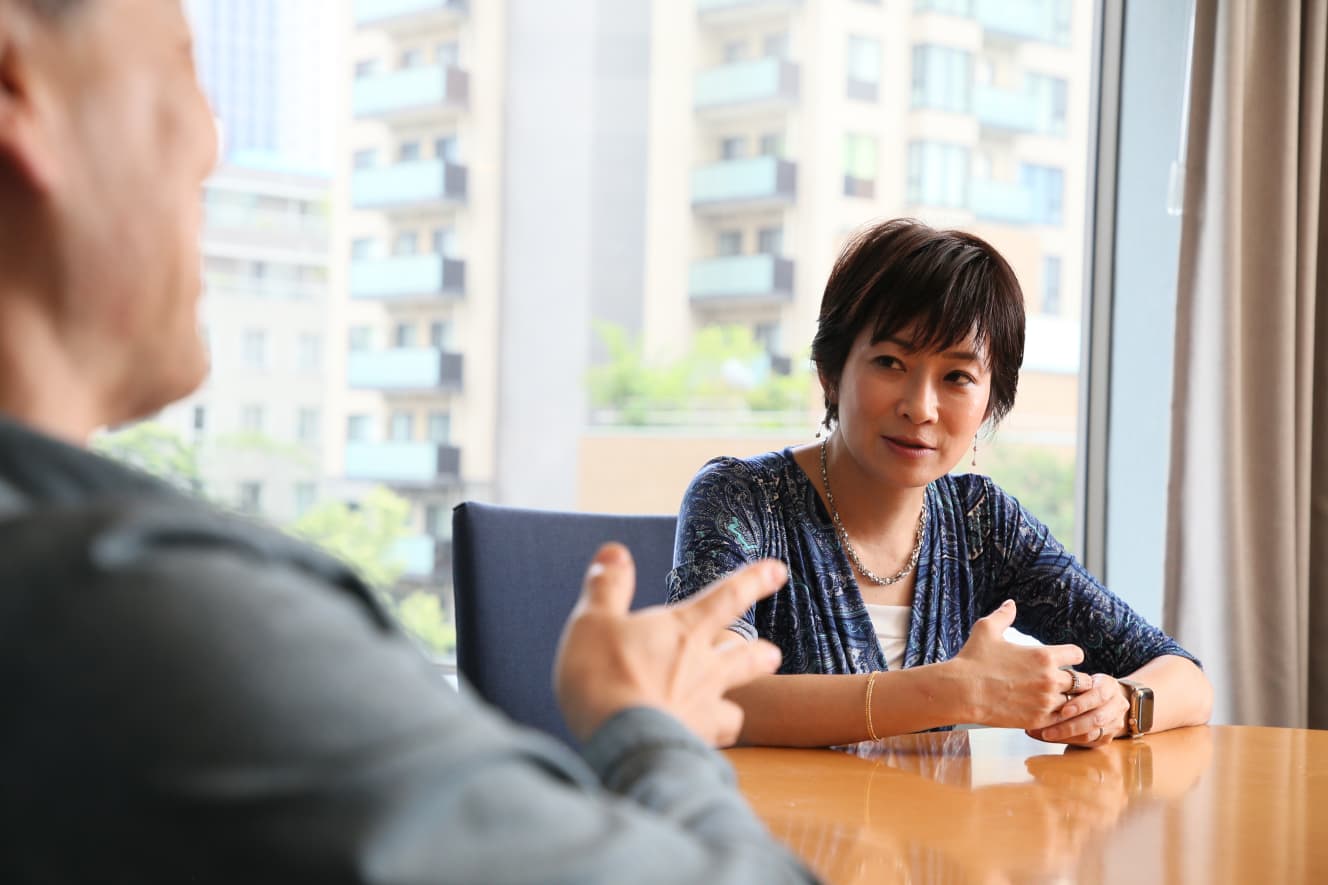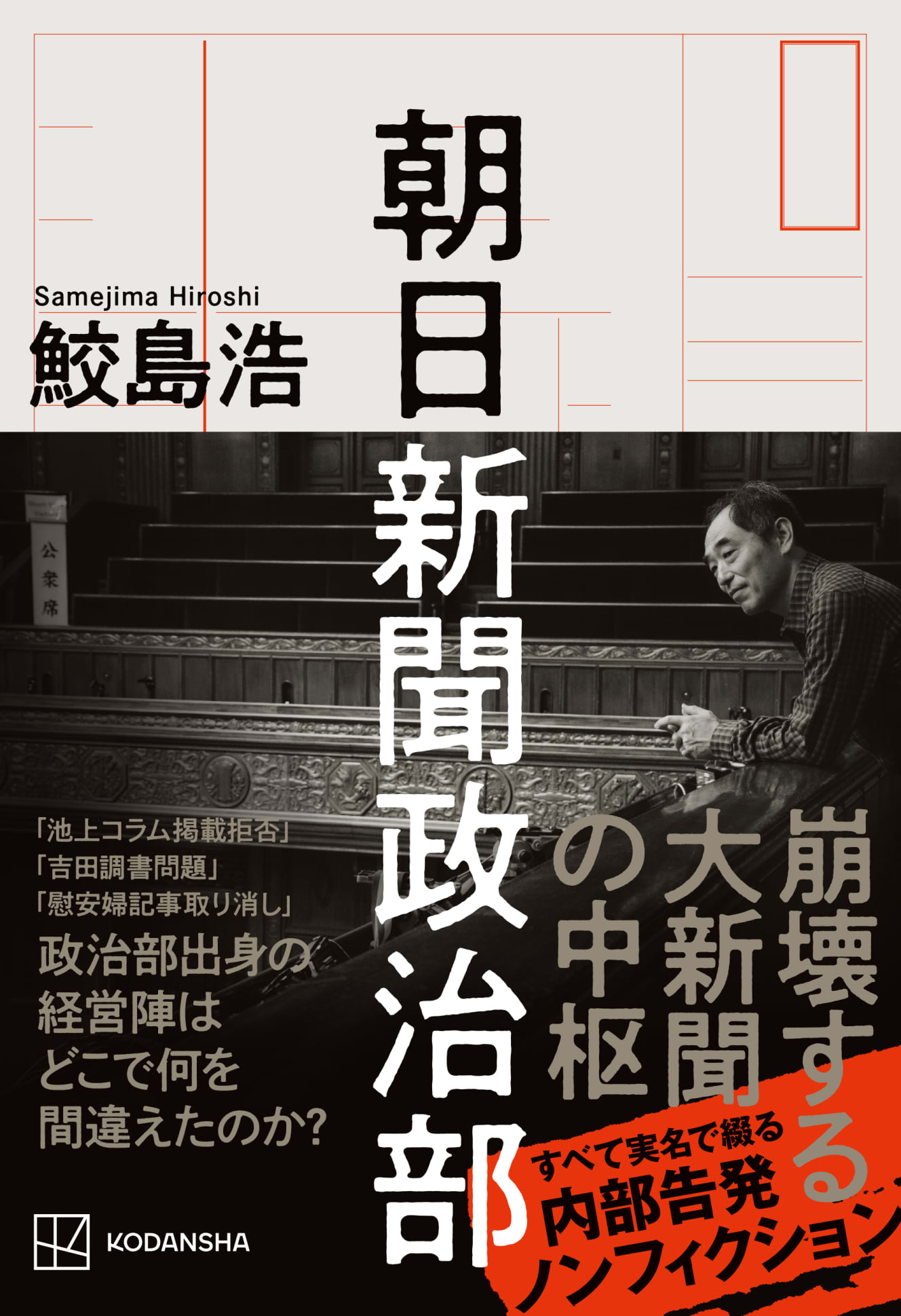The Unexpected Face of Former Prime Minister Kan and the Merits and Demerits of His Administration

The existing media only appreciate the importance of lining their pockets, and the basic principle of journalism as the final stab in the back has been lost. I have criticized the Prime Minister’s Press Club, but the evil composition of the club is the same in both the political and social sections.
Samejima: That is why I think that not only the Political Affairs and Social Affairs sections, but even the Economics section should be destroyed. I think the only way to recover is to establish a system of investigative reporting that breaks away from the press clubs. I think the role of the media in the future is to create a system that allows reporters to report independently from the perspective of monitoring power.
Samejima: In the first installment of our dialogue, I explained that politicians hate being called “weak” more than being called “bad”. From your point of view, what kind of politician was Mr. Kan?
Mochizuki: Hearing Mr. Samejima’s explanation made sense to me. I knew that Mr. Kan was a politician who did not want to be called “weak”. That is probably why he strongly opposes my criticism.
Strong pressure on the author
Samejima: Lacking confidence in his language skills, he collects questions in advance and reads out the answers prepared by the bureaucrats. And yet, he answers Mochizuki’s questions in an intimidating manner. On the other hand, he controls the bureaucrats with his personnel power and has the breakthrough power to break through the walls of bedrock regulations.
Mochizuki: This attitude sometimes spins out of control and gives the opposite impression of being “weak”. For example, at the end of last year, a book titled “Who Was Solitary Prime Minister Suga Yoshihide? The author is Takashi Yanagisawa of NTV, a former reporter on Kan’s watch. The book is a candid account of Prime Minister Kan. In a sense, it is a book of revelations, but at the same time, it is a glimpse into Kan’s human side, beautifully expressing his loneliness and anguish. However, when Mr. Kan found out that the book was to be published, he apparently became furious, saying, “Let me see the manuscript,” Mr. Yanagisawa refused to censor the book and it was successfully published.
Samejima: Mr. Kan must have felt betrayed and betrayed by being exposed to his weakness.
Mochizuki: That’s what I think is small. According to this book, Mr. Kan sat down on the sofa and said, “You can write my book.” Mr. Yanagisawa worked for the Metropolitan Police Department and as a correspondent in New York before becoming Kan’s number one. He is not a so-called purely cultured political reporter, but he himself writes that “getting into the news is a means to an end” and that he should be evaluated based on the results of what he has conveyed to the public. It is because of this feeling that he was able to write. It is the true nature of a reporter, but Mr. Kan does not understand this.
Samejima: Perhaps Mr. Kan thought that Mr. Yanagisawa was his protégé. Therefore, his feeling of betrayal must have preceded him. I have always declared to politicians that I would “write” about them, and my style differs from Mr. Yanagisawa’s because I am a political analyst who keeps a close watch on their actions.

Samejima: This is the same situation as when Nobuhisa Sagawa, then Director General of the Finance Bureau of the Ministry of Finance, was promoted to Commissioner of the National Tax Agency after falsifying a sanctioned document to defend Prime Minister Abe’s statement “If my wife and I were involved, I would quit as prime minister and Diet member” in the Moritomo Gakuen national land disposal issue.
Mochizuki: In the first place, I heard that Mr. Nakamura of the police department made the excuse that he did not know whether he could prosecute the case, but a senior prosecutor I know criticized him, saying, “That is not for the police to decide, but for us to decide. The police arrest people because they are strongly suspected of semi-rape, but whether or not they conduct a mandatory investigation makes a huge difference in the evidentiary materials and testimony.”
After all, in an off-the-record meeting with reporters, Nakamura said, “Arresting the head of the press club without knowing the likelihood of prosecuting him could be called suppression of speech. That’s why I didn’t go ahead with the arrest.” “I would have made the same decision if an arrest warrant had been issued for you (press club members),” Nakamura was said to have said. Can any citizen of a country under the rule of law understand this logic? If he really believes this, I would like him to say it out loud and proudly to the public at a press conference, instead of keeping it off the record.
Samejima: So you are saying that only the senior citizens, including political journalists, will be protected. This is the worst kind of logic that leads to distrust of politics.
Mochizuki In the end, Ms. Shiori Ito had no choice but to struggle on her own, and before she knew it, foreign media such as the BBC and the New York Times were increasingly critical of her, calling her “Japan’s dark side” and “a black box”. This is the truth behind “The Japanese Journalism”.
Samejima: It is truly shameful.
*In the “Third Dialogue,” to be delivered on July 6 at 2:00 p.m., we will discuss the ideal form of political reporting from now on.

Hiroshi Samejima was born in 1971. After graduating from Kyoto University’s Faculty of Law, he joined the Asahi Shimbun. After leaving the newspaper in 2009, he launched ” SAMEJIMA TIMES,” which is available for free every day. He also actively provides political commentary videos on YouTube.
Born in 1975 . After graduating from the Faculty of Law at Keio University, he joined the Chunichi Shimbun newspaper in Tokyo. He has worked in the economics and social affairs sections of the newspaper. His sharp questions at the Chief Cabinet Secretary’s press conference became the talk of the town. Author of “Newspaper Reporter” and “Arms Export and Japanese Companies” (both in Kadokawa Shinsho).
Photo by: Shinji Hamasaki